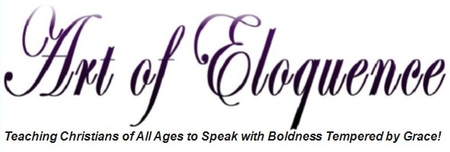--------------------------------------------------------------------------------
Is it always desirable to use large, complicated, obscure or technical terms? While having a large vocabulary is important for good communication, it isn't always effective to use. Here are a list of circumstances in which it is NOT effective to use your extensive vocabulary:
1. With small children
This is an obvious one. Everyone knows it's best to simplify their language when speaking with small children. But what we often forget is why and how that might be a good rule of thumb to use with adults in other situations. Why don't we use big words with small kids? Because they don't understand them. They don't know the meanings of those words. Well, as we will see in the next few situations, many adults don't know the meanings of the technical, cultural or regional terms we use either.
2. Using technical terms with non technical people
A doctor may use the term "acute myocardial infarction" with his colleagues, but probably should use the term "heart attack" with most of his patients. Can you imagine going to the doctor and hearing him diagnose you with "sphenopalatine ganglioneuralgia?" I don't know about you, but that sounds rather scary! Know what it is? That's the nerve pain of the sphenopalatine ganglion," a form of brief cranial pain or headache commonly associated with consumption of cold beverages or foods such as ice cream. In other words, brain freeze. Don't you feel better now?
3. Using insider terms with those outside
"My peeps! Check it. Going solo to the partay. Meet ups late @ The Hang. Kbers." Some terms are adopted slang that every teens becomes familiar with. Others are regional or even between a small group of friends. Using these terms with outsiders leaves the outsiders feeling like, well...outsiders! Mary just moved here from a farm in Iowa. She's got no idea where The Hang is. It's just what these seven friends call Millie's Diner on 7th Street because they always meet there.
4. When it will make you come across as pompus
"May I endeavor to determine the origin of your denim trousers?" Nuff said!
5. When the technically correct or accurate word isn't widely used or known in that circumstance
Sometimes there is a more obscure word we know that would best fit the message we want to convey. Other times there may be a word that is not currently used in the correct way. However, if we use it, we risk being seen as pompus or misunderstood. Communication is not as much about the correct use of words as it is the way in which our audience will best understand our intended meaning.
A large vocabulary is a tool. While you wouldn't use a sledge hammer to do the work where a chisle will do, it isn't advisable to use words that are equally overkill. Each situation calls for a delicate balance of simplicity and precision. Knowing which words to use is a skill you develop as you grow your vocabulary and hone your listening and observation skills. Relating to your audience is key to communicating effectively with them. How you do that will vary from person to person and from situation to situation.
~*~*~*~*~*~*~*~*~*~*~*~*~*~*~*~*~*~*~*~*~ JoJo Tabares holds a degree in Speech Communication, but it is her humorous approach to communication skills which has made her a highly sought-after Christian speaker and writer. Her articles appear in homeschool publications, such as Homeschool Enrichment Magazine and The Old Schoolhouse Magazine, which also endorses her Say What You Mean curricula. You can also find JoJo on web sites such as Crosswalk.com and Dr.Laura.com. For more information on communication FUNdamentals and Christian-based communication skills for the whole family, please visit http://www.ArtofEloquence.com
If you liked this article, please subscribe to our RSS feed and share the link…
